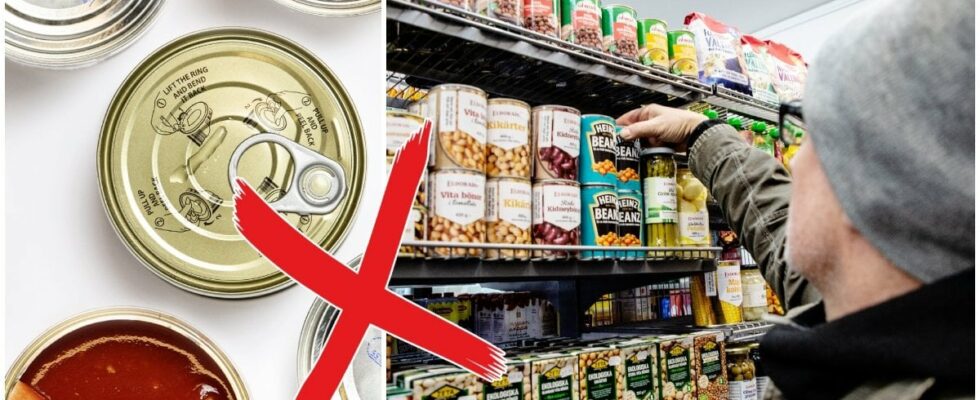On 1 January, a number of new laws and regulations were introduced. For example, new PET bottles must, from this date, contain at least 25 percent recycled plastic and a new requirement for charging stations has come into force.
In addition, it has become forbidden to throw away textile waste in the household waste.
“The government has decided to require separate collection of textile waste. This is a step towards a more circular handling of textiles in Sweden and means, among other things, that the municipalities must collect household textile waste separately”, the government has written on its homepage.
DON’T MISS: The new law in 2025 arouses strong anger: “Is unreasonable”
Photo: Johan Nilsson/TT
READ MORE: New laws in 2025 – then they come into force
Ban on bisphenols in food packaging
On January 20, another regulation comes into force. The European Commission has made a decision that makes it prohibited to use bisphenol A and other bisphenols in materials that come into contact with food.
“The health effects Efsa (European Food Safety Authority, ed. note) bases its new, stricter assessment on is primarily that bisphenol A can interfere with the normal functioning of the immune system. This primarily applies to the part of the immune system that may be involved in so-called allergic pneumonia and autoimmune diseases such as multiple sclerosis, rheumatoid arthritis and psoriasis,” writes the Swedish Food Agency in a press release.
Since before, it has not been permitted to use bisphenol A in the manufacture of baby bottles, sippy cups or other drinking vessels made of polycarbonate intended for children under three years of age. It has also been prohibited to use coatings that release bisphenonal A in food packaging intended for children under the age of three.
DON’T MISS: The Swedish Food Agency: Eat less meat – so little applies to you
Photo: Oscar Olsson/TTSpecifically a lot of bisphenols in cans
Bisphenol A occurs particularly in cans, but also in packaging made for microwave heating or plastic sports bottles. But from January 20, it will therefore be prohibited to use materials containing these substances for food containers.
– Since we mainly get bisphenol A through food, this is a good decision that leads to us being exposed to a smaller amount of the substances, says Sabina Litens Karlssontoxicologist at the Swedish Food Agency, in the press release.
Photo: Emma-Sofia Olsson/SvD/TT
DON’T MISS: You should never store it in the pantry – the mistake many make
At the same time, the authority states that, even if the regulation enters into force now, there will be a transition period where packaging with bisphenols will continue to be sold in stores. During this transition period, you will not be able to distinguish which packaging complies with the new regulations and which does not.
“It is not regulated that there should be any special labeling on materials or products in contact with food that meet these new regulations,” writes Christine Furuhagenstate inspector at the unit for drinking water and chemical substances at the Swedish Food Agency, to News24.
READ MORE: News today – current news from Sweden and the world
DON’T MISS: Latest news – take part in what’s happening right now
